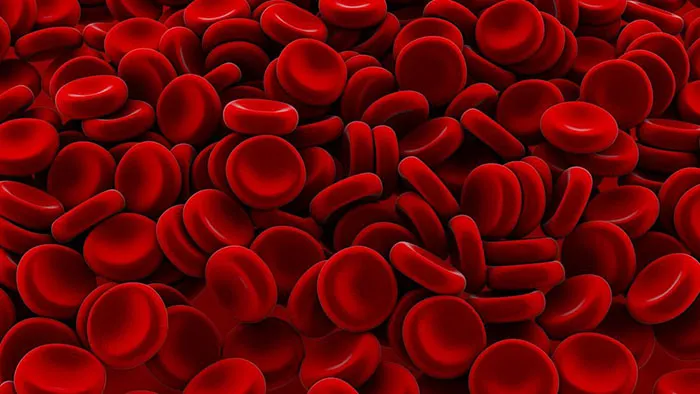Vitamin B9, also known as folic acid, is a water-soluble vitamin that is important for making red blood cells, along with vitamin B12 and iron. A deficiency in vitamin B9 can lead to anemia, which occurs when the formation of red blood cells slows down.
Vitamin B9 also plays a role in maintaining the health of the liver, skin, hair, eyes, and nervous system, and it helps with normal blood formation, immune system functioning, fetal development during pregnancy, and reducing fatigue and low energy.
Folic acid is a synthetic form of vitamin B9 that can be found in supplements and fortified foods, while folate is a natural form of the vitamin found in foods. A deficiency in vitamin B9 can be diagnosed through symptoms and blood tests, and it can be treated by increasing the amount of folate in the diet and through supplements.
Vitamin B9 or folic acid daily dose
The daily requirement of vitamin B9 varies based on age, class, and other factors. It is important to get an adequate amount of vitamin B9 regularly, as a deficiency can lead to various health problems. The exact amount required can be found in the provided table.
Symptoms of Vitamin B9 or folic acid deficiency?

Vitamin B9 deficiency can develop slowly over time and its symptoms may start off mild and intensify as the deficiency progresses. Some of the common symptoms of Vitamin B9 deficiency include:
- Dizziness
- Yellowing of the skin
- Irregular heartbeats
- Weight loss
- Numbness and tingling in hands and feet
- Muscle weakness
- Changes in personality
- Breathlessness
- Volatility
- Fatigue
- Mental confusion or forgetfulness
- Diarrhea
- Loss of appetite
- Weakness
- Headache
- Irritability
- Nervousness
- Depression
- Ulcers on the tongue
If you experience any of these symptoms, it is recommended to see a doctor immediately. This is especially important if you are pregnant or trying to conceive, as vitamin B9 deficiency can cause serious health problems in the fetus.
If left untreated, severe vitamin B9 deficiency can result in anemia and slow growth of the fetus. It is important for pregnant women to get enough folic acid as it helps prevent genetic defects in the child. Women who do not get enough folic acid are also at a higher risk of delivering a premature or low birth weight baby.
Who is most at risk for vitamin B9 deficiency?
Vitamin B9 or folate is a water-soluble vitamin that is not stored in the body and needs to be regularly consumed. Deficiency in Vitamin B9 can occur due to several reasons such as:
- Malnutrition: A diet lacking in fresh fruits, vegetables, and fortified cereals is a common cause of folate deficiency. Overcooking food can also destroy vitamins.
- Malabsorption: Certain health conditions that affect the absorption of vitamins and minerals in the gastrointestinal tract, such as Crohn’s disease, celiac disease, certain types of cancer, and kidney problems that require dialysis can lead to folate deficiency.
- Genetics: Some people have genetic mutations that prevent their bodies from getting enough folate through diet and supplements.
- Side effects of drugs: Certain medications, such as phenytoin, trimethoprim sulfamethoxazole, methotrexate, and sulfasalazine, can cause a deficiency in folate.
- Excessive alcohol consumption: Drinking alcohol affects the absorption of folate and can lead to frequent urination and folate loss.
- Pregnancy: Folate levels decrease during pregnancy, as the fetus grows and starts taking the folic acid taken by the mother. Morning sickness and vomiting can also lead to the loss of folic acid.
What are the dangers of Vitamin B9 deficiency?
The dangers of Vitamin B9 deficiency include:
- Hemodialysis due to kidney failure
- People taking medicines for diabetes
- People undergoing kidney dialysis
- People who use laxatives or diuretics excessively or frequently
- Cancer treatment, as some drugs used to treat cancer can interfere with the metabolism of folate.
What is the best source of vitamin B9?
To prevent deficiency in Vitamin B9 or folic acid, it’s important to eat foods rich in the nutrient. To prevent folate deficiency, consume foods such as green leafy vegetables (e.g. broccoli and spinach), Brussels sprouts, peas, citrus fruits, bananas and melons, tomato juice, eggs, beans, legumes, mushrooms, liver meat, chicken, shellfish, oats, and fortified cereals.
Avoid consuming alcohol, as it interferes with the absorption of Vitamin B9. Also, do not overcook foods as this can reduce their folate content.
Folic acid deficiency is common in pregnant women and increases the risk of miscarriage and neural tube defects. Oral supplements of B vitamins are recommended for women during and after pregnancy.
If you are taking certain types of medications, such as anti-epileptic drugs, inform your doctor as they can deplete Vitamin B9 and other nutrients as a side effect.
How is Vitamin B9 Deficiency Tested?
To check for vitamin B9 (folate) deficiency, a doctor will first ask about symptoms and dietary habits. Blood tests can then be performed to check for low levels of hemoglobin and red blood cells, as well as the levels of vitamin B9 and folate in the blood. A red blood cell folate level test or pregnancy test may also be ordered.
If the doctor suspects a deficiency, a complete blood count (CBC) may be done to measure the number and size of red blood cells, as immature red blood cells can indicate a folate deficiency.
It is important to inform the doctor of any medications being taken, as some can decrease folic acid levels. If symptoms are similar to those of folic acid deficiency anemia, further tests may be needed for confirmation.
How to fix Vitamin B9 deficiency?
Treatment for a Vitamin B9 deficiency depends on the underlying cause. Consuming foods rich in Vitamin B9 and taking folate supplements are the common ways to treat this condition. In some cases, intravenous injections or tablets may be used to supplement the deficiency.
Taking daily folate tablets is the easiest way to treat Vitamin B9 deficiency, however, if you have very low levels, intravenous injections may also be used. Vitamin B complex supplements, which often include folate, are also available.
It’s important to increase the levels of folic acid in your body, so along with taking supplements, you should also eat foods rich in folic acid, such as pinto beans, spinach, and oranges. Avoid processed foods and focus on eating fresh foods.
Diseases caused by Vitamin B9 deficiency
Deficiency in Vitamin B9 can cause several health problems, such as premature aging, heart attack, stroke, mental disorders, anemia, low white blood cell count, and an increased risk of certain types of cancers, including cervical, breast, colon, brain, and lung cancer.
To maintain a healthy heart, it’s important to keep the levels of homocysteine, an amino acid, regular. Vitamin B9 helps in regulating the levels of homocysteine. Taking folic acid supplements may also help in treating anxiety and depression.

